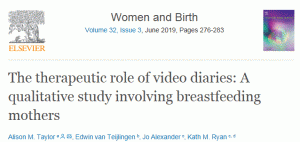Dr. Jaeyeon Choe in Faculty of Management organised a panel session, ‘Geographies of religion and spirituality: pilgrimage beyond the ‘officially’ sacred’ at Royal Geographical Society Annual Conference in 2016 (https://blogs.bournemouth.ac.uk/research/2016/09/04/geographies-of-religion-and-spirituality-at-royal-geographical-society-conference-london-2016/). Emerging from the panel papers, she successfully organised a special issue addressing the topic from cross-disciplinary perspectives in the Journal – “Tourism Geographies” https://www.tandfonline.com/toc/rtxg20/current
Dr. Jaeyeon Choe with Dr. Michael Di Giovine (Associate Professor of Anthropology, West Chester University, USA) published an introduction paper as a part of the special issue:
https://www.tandfonline.com/doi/abs/10.1080/14616688.2019.1625072?scroll=top&needAccess=true&journalCode=rtxg20
The papers in this special issue, Geographies of Religion and Spirituality: Pilgrimage beyond the ‘Officially Sacred,’ are placed in the context of a comprehensive theoretical overview of the role that the sacred plays in shaping, conducting, controlling, and contesting pilgrimage. As scholarship examining the lived experiences of travelers has demonstrated, pilgrimages need not necessarily be religious in nature, nor be officially sanctioned. Rather, if pilgrimages are perceived as ‘hyper-meaningful’ by the practitioner, the authors in this special issue argue that a common denominator of all of these journeys is the perception of sacredness—a quality that is opposed to profane, everyday life. Separating the social category of ‘religion’ from the ‘sacred,’ these articles employ an interdisciplinary approach to theorize sacredness, its variability, and the ways in which it is officially recognized or condemned. Thus, the authors pay particular attention to the authorizing processes that religious and temporal power centers employ to either promote, co-opt, or stave off, such popular manifestations of devotion, focusing on three ways: through tradition, text or institutionalized norms. Referencing examples from across the globe, and linking them to the varied contributions in this special issue, this introduction complexifies the ways in which pilgrims, central authorities, locals and other stakeholders on the ground appropriate, negotiate, shape, contest, or circumvent the powerful forces of the sacred. Delving ‘beyond the officially sacred,’ this collective examination of pilgrimages, both well-established and new; religious and secular; authorized and not; the contributions to this special issue, as well as this Introduction, examines the interplay of a transcendent sacred for pilgrims and tourists so as to provide a blueprint for how work in the geography of religion and the fields of pilgrimage and religious tourism may move forward.
We hope all scholars enjoy the 8 papers, from 12 authors and 8 countries!









 Today sees the launch of Research England’s
Today sees the launch of Research England’s  Today sees the launch of Innovate UK’s
Today sees the launch of Innovate UK’s  Today sees the launch of the Science and Technology Facility Council’s
Today sees the launch of the Science and Technology Facility Council’s  Today sees the launch of Biotechnology and Biological Sciences Research Council’s
Today sees the launch of Biotechnology and Biological Sciences Research Council’s  Today sees the launch of the Medical Research Council’s
Today sees the launch of the Medical Research Council’s  Today sees the launch of Natural and Environmental Research Council’s
Today sees the launch of Natural and Environmental Research Council’s  Today sees the launch of Economic and Social Research Council’s
Today sees the launch of Economic and Social Research Council’s  Today sees the launch of Engineering and Physical Sciences Research Council’s new
Today sees the launch of Engineering and Physical Sciences Research Council’s new  Today sees the launch of UK Research and Innovation’s new
Today sees the launch of UK Research and Innovation’s new  Today sees the launch of AHRC’s new
Today sees the launch of AHRC’s new 











 From Sustainable Research to Sustainable Research Lives: Reflections from the SPROUT Network Event
From Sustainable Research to Sustainable Research Lives: Reflections from the SPROUT Network Event REF Code of Practice consultation is open!
REF Code of Practice consultation is open! BU Leads AI-Driven Work Package in EU Horizon SUSHEAS Project
BU Leads AI-Driven Work Package in EU Horizon SUSHEAS Project ECR Funding Open Call: Research Culture & Community Grant – Apply now
ECR Funding Open Call: Research Culture & Community Grant – Apply now ECR Funding Open Call: Research Culture & Community Grant – Application Deadline Friday 12 December
ECR Funding Open Call: Research Culture & Community Grant – Application Deadline Friday 12 December MSCA Postdoctoral Fellowships 2025 Call
MSCA Postdoctoral Fellowships 2025 Call ERC Advanced Grant 2025 Webinar
ERC Advanced Grant 2025 Webinar Update on UKRO services
Update on UKRO services European research project exploring use of ‘virtual twins’ to better manage metabolic associated fatty liver disease
European research project exploring use of ‘virtual twins’ to better manage metabolic associated fatty liver disease